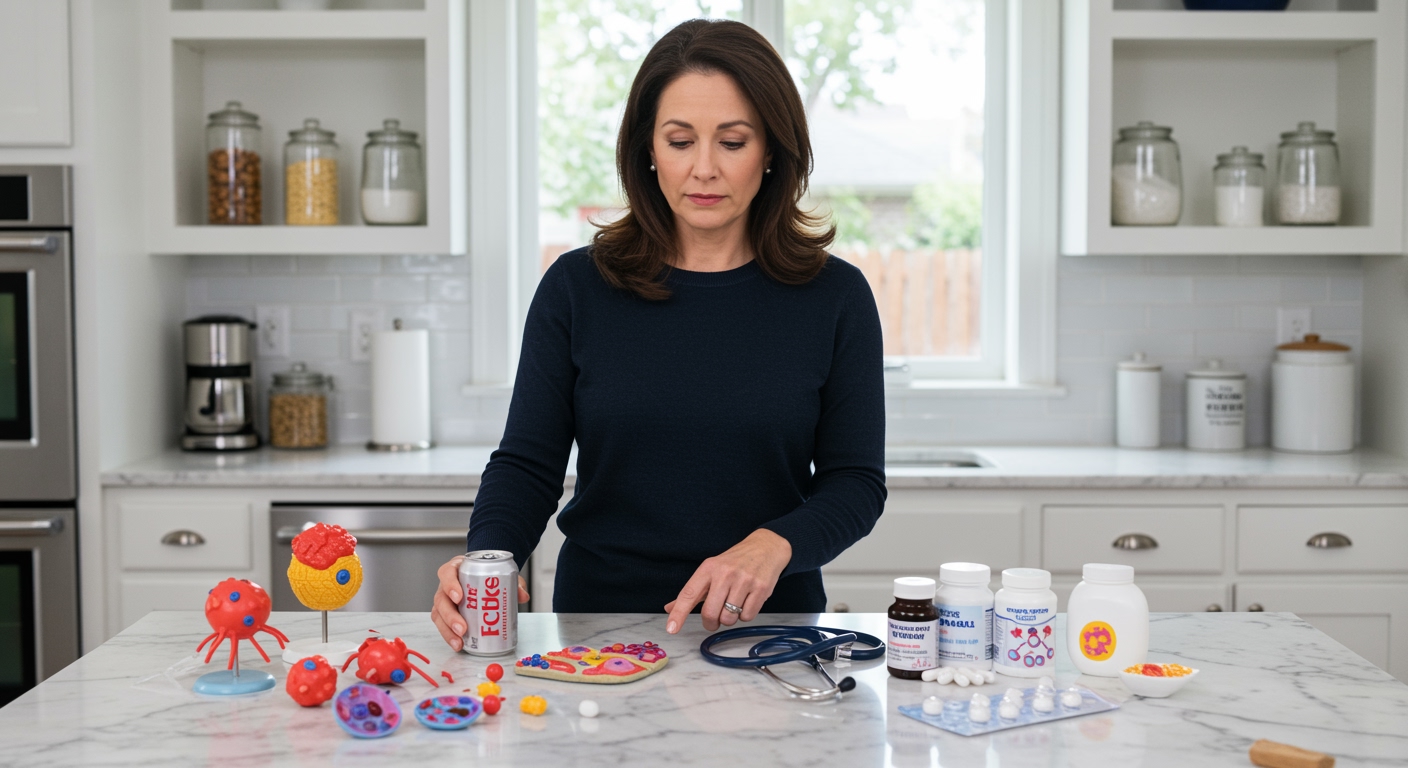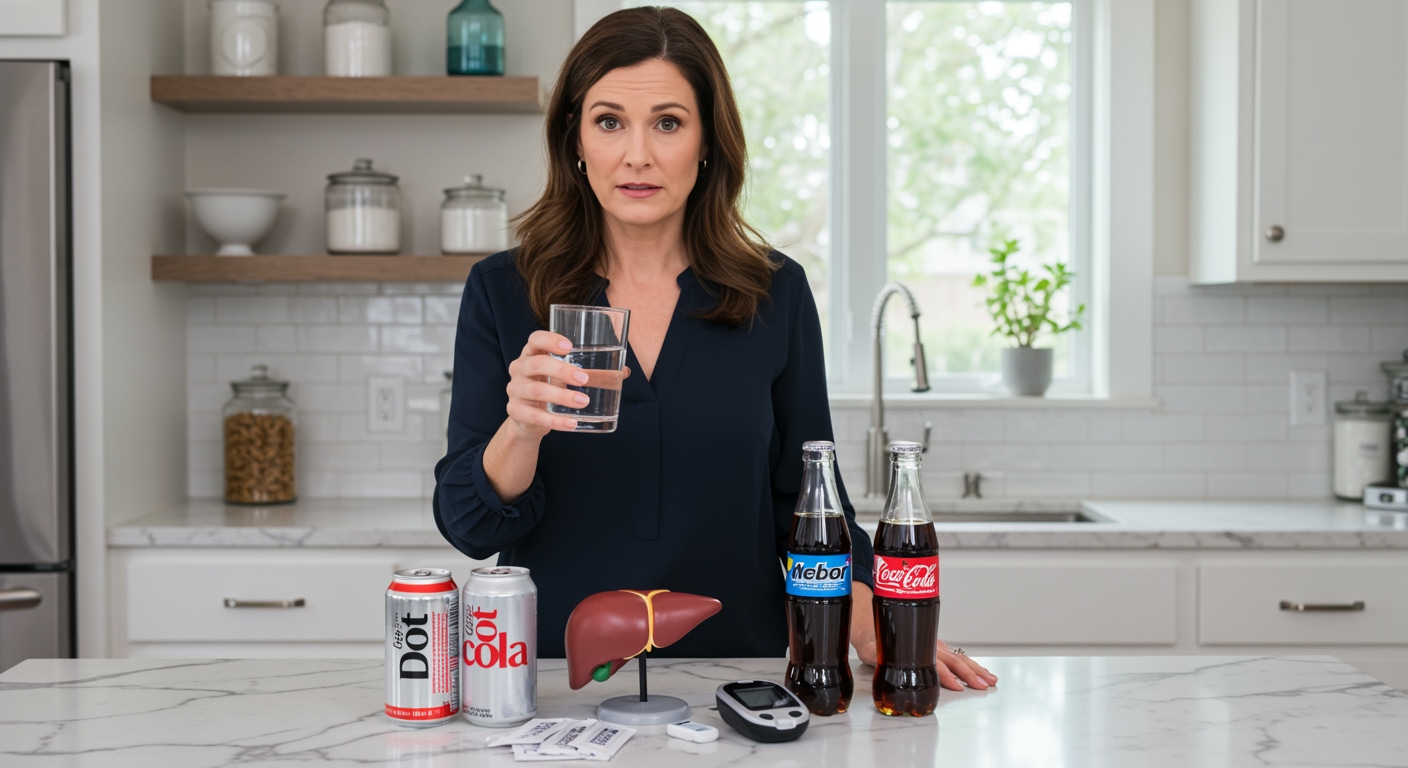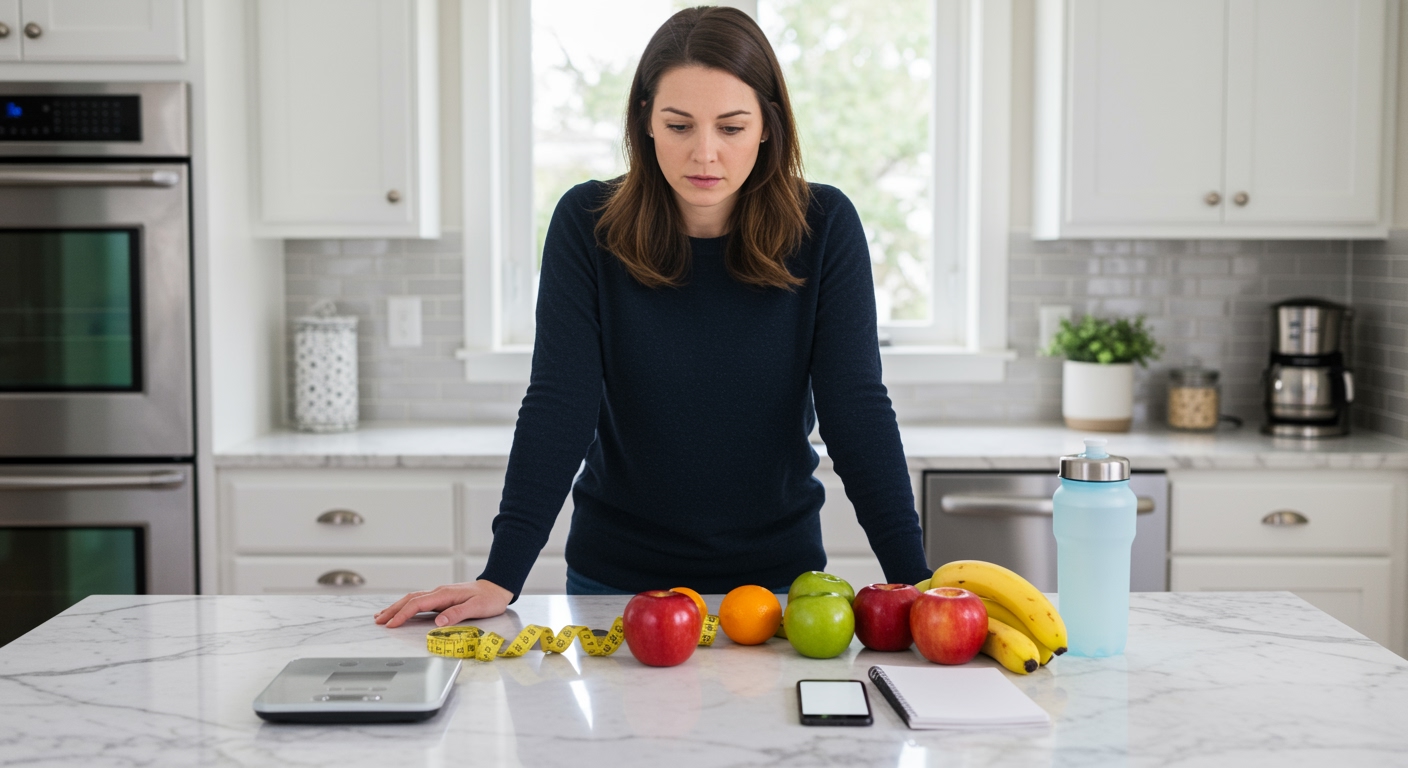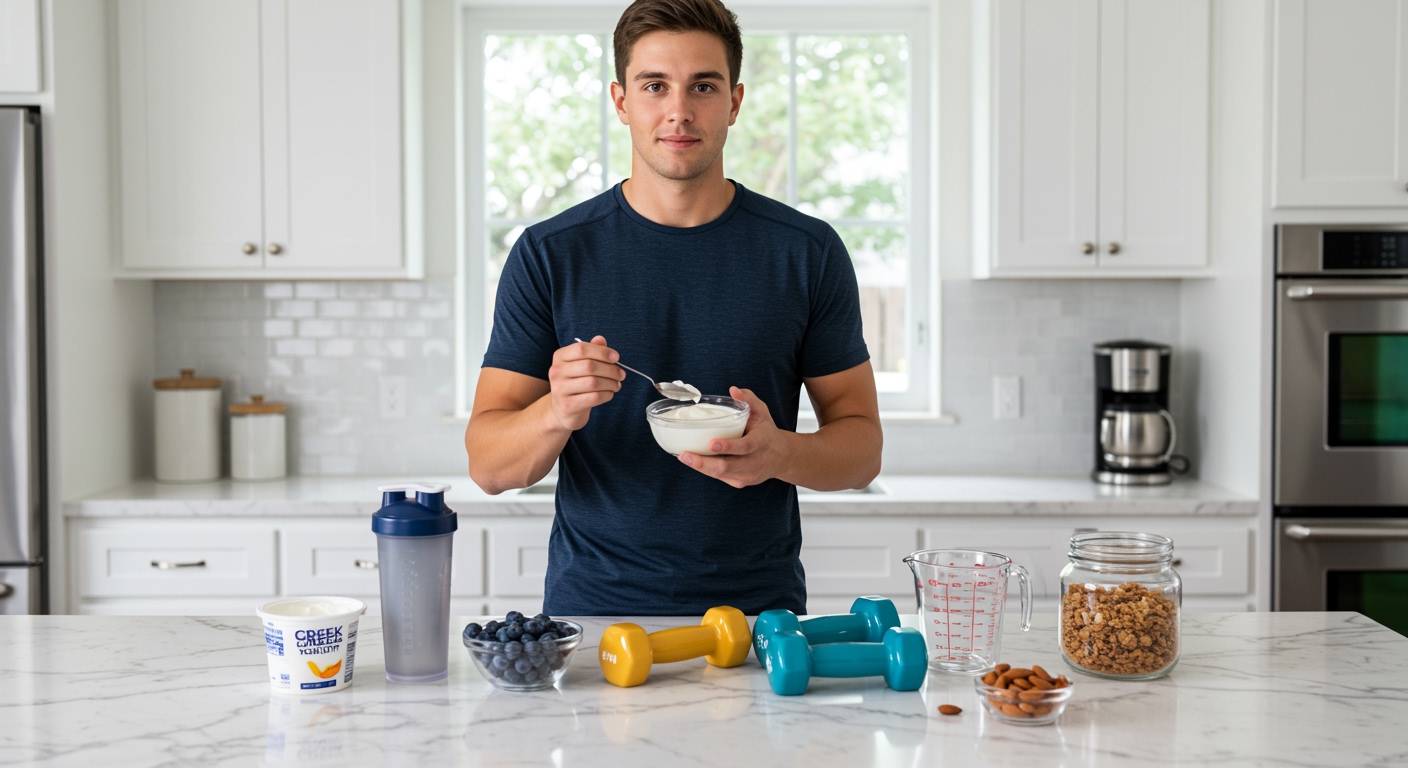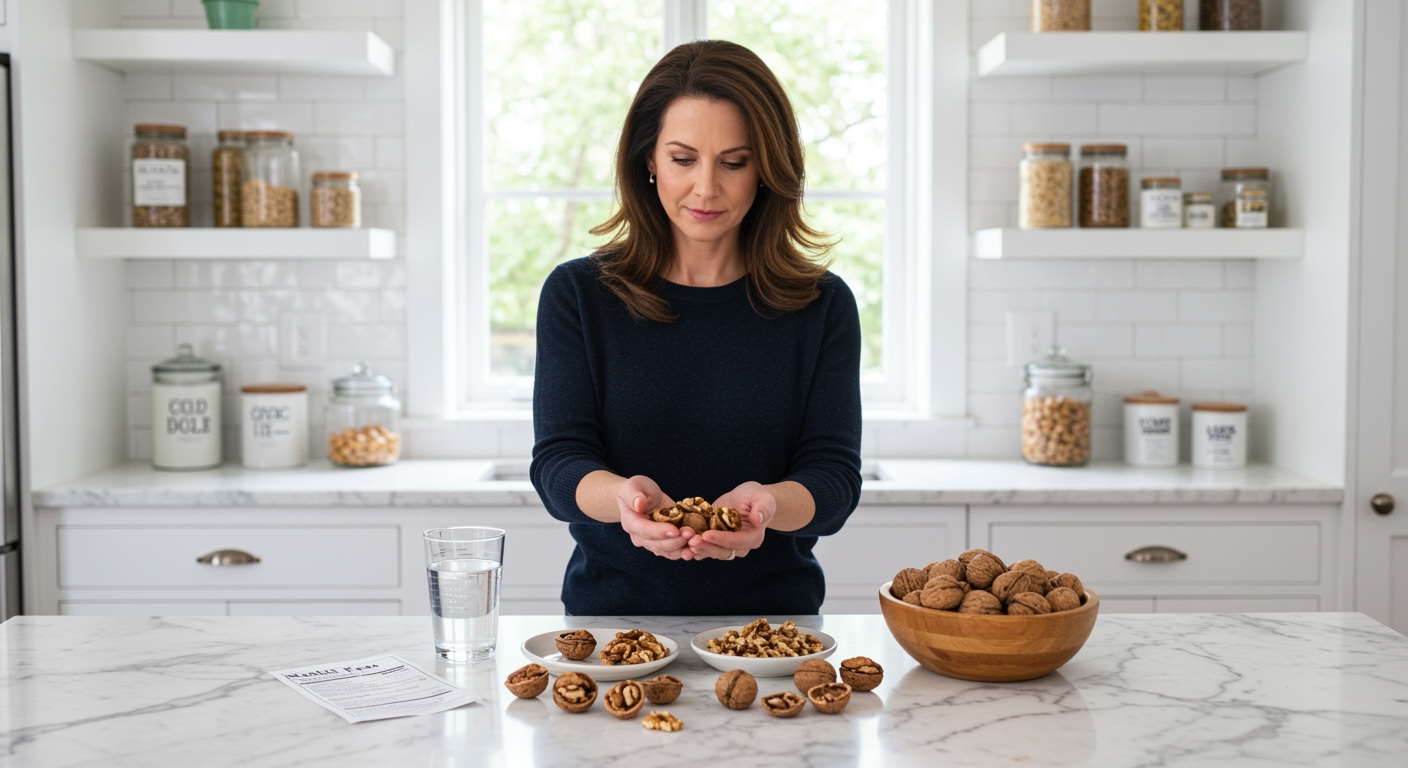✪ Key Highlight: Sucralose artificial sweetener reduces cancer immunotherapy effectiveness and shortens survival times in patients.
Introduction
Cancer patients who drink diet soda might be sabotaging their own treatment without knowing it.
New research from University of Pittsburgh shows that sucralose makes cancer immunotherapy treatments fail more often and reduces patient survival times significantly.
Hi, I’m Abdur, your nutrition coach and today I’m going to analyze this groundbreaking study that reveals how artificial sweeteners interfere with life-saving cancer treatments.
How Does Sucralose Damage Cancer Treatment?
Sucralose disrupts your gut microbiome in ways that directly interfere with immunotherapy drugs.
Your gut bacteria play a crucial role in training your immune system to recognize and attack cancer cells effectively.
When sucralose alters these beneficial bacteria, your T cells become less active and less capable of fighting cancer.
The researchers tested this theory in mice first and found that animals consuming sucralose had significantly worse outcomes during immunotherapy treatment.
Immunotherapy drugs like anti-PD1 therapy work by removing the brakes on your immune system so it can attack cancer more aggressively.
But sucralose essentially puts those brakes back on by changing the gut environment that supports immune function.
✪ Fact: Your gut contains 70% of your immune system cells that help fight cancer.
Which Cancer Patients Are Most At Risk?
The study focused on patients with melanoma and non-small cell lung cancer who were receiving immunotherapy treatments.
Patients who consumed high amounts of sucralose showed poorer responses to treatment across multiple cancer types and stages.
This means the problem affects a wide range of cancer patients, not just those with specific tumor types.
The researchers found that sucralose impaired immunotherapy effectiveness regardless of the specific treatment approach being used.
Cancer patients often turn to artificial sweeteners to manage weight or blood sugar during treatment.
Unfortunately, this well-intentioned choice might be reducing their chances of treatment success significantly.
✪ Note: Sucralose is found in diet sodas, sugar-free snacks, and even some medications.
What Simple Solution Did Scientists Discover?
The research team found that arginine supplements completely reversed the negative effects of sucralose on cancer treatment.
Arginine is an amino acid that your body uses to support immune function and help T cells work more effectively.
When mice were given arginine supplements along with sucralose, their immunotherapy treatments worked just as well as animals that never consumed the artificial sweetener.
The scientists are also investigating citrulline supplements, which might be even more effective at raising arginine levels in the body.
This discovery offers hope for cancer patients who rely on artificial sweeteners but still want optimal treatment outcomes.
The researchers plan to start clinical trials soon to test whether these supplements work safely in human cancer patients.
✪ Pro Tip: Always discuss supplement use with your oncologist before starting any new regimen during cancer treatment.
Should Cancer Patients Avoid All Artificial Sweeteners?
This study specifically examined sucralose, but other research has raised concerns about different artificial sweeteners and cancer risk.
A large French study published in 2022 found that aspartame and acesulfame-K were linked to higher overall cancer risk.
However, the researchers acknowledge that completely avoiding artificial sweeteners might not be realistic for all cancer patients.
Many patients are already dealing with treatment side effects, dietary restrictions, and other challenges that make dietary changes difficult.
The goal is to meet patients where they are and provide practical solutions that work with their current lifestyle.
This is why the supplement approach is so promising – it offers a simple way to counteract the negative effects without requiring major lifestyle overhauls.
✪ Fact: Cancer patients face enough challenges without having to completely eliminate familiar foods and drinks.
The Bottom Line
This research reveals a serious problem that could affect thousands of cancer patients who consume sucralose during immunotherapy treatment.
Your food choices during cancer treatment matter more than you might think, and small changes can have big impacts on your survival chances.
I want to hear your thoughts about this study and whether you think cancer patients should avoid artificial sweeteners completely or rely on supplements to counteract the effects – please share your opinion in the comments below.
References
At NutritionCrown, we use quality and credible sources to ensure our content is accurate and trustworthy. Below are the sources referenced in creating this article:
- University of Pittsburgh School of Medicine: Sucralose Could Make Cancer Treatment Less Effective
- UPMC: Artificial Sweetener May Hamper Cancer Treatment
- Medical News Today: Popular Artificial Sweetener Sucralose May Negatively Affect Cancer Immunotherapy
- Cancer Therapy Advisor: Sucralose Intake May Reduce Efficacy of ICIs
